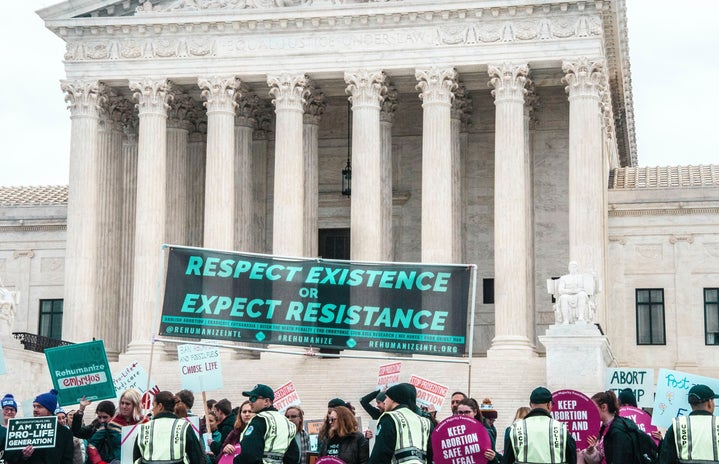The midterm elections in the United States brought several statewide changes to the Supreme Court’s decision to overturn Roe v. Wade this past summer. While Republican politicians focused on opposing abortion, Democratic politicians capitalized on keeping abortion safe and legal. Many voters now recognize the importance of state legislatures in statewide law-making regarding abortion rights after the summer’s reversal on legal precedent. Abortion and reproductive freedom were not the only campaign issue for either party, as plans to combat inflation were also key takeaways from this election cycle. Five states placed abortion-related initiatives on the ballot, and in all five, voters opted either in favor of abortion rights or rejected further limits.
Shockingly, last week, Republican-leaning Kentucky voted against an anti-abortion amendment to its state constitution. According to NBC, about 52 percent of Kentucky voters voted against the initiative. The state director of the Kentucky Planned Parenthood Alliance Advocates states the message that Kentucky sent in the 2022 midterms. She explains, “Abortion transcends party lines.” However, Kentucky also reelected Senator Rand Pual, a highly conservative member of Congress, who says, “I am 100 percent pro-life. I believe life begins at conception and that abortion takes the life of an innocent human being. It is the duty of our government to protect this life as a right guaranteed under the Constitution.” For abortions to continue in the state of Kentucky, citizens will need the Kentucky Supreme Court to rule in favor of the protection of abortion rights after they hear arguments this week.
The amendment was meant to protect from this judicial review. Many in Kentucky are disheartened by the anti-abortion amendment failure. One voter, JoAnn Lewis of Lexington, Kentucky, stated, “Life, once it is seeded, it needs to grow just like a garden — you’ve got to protect it.”
Governor Gretchen Whitmer of Michigan, a Democrat and supporter of abortion rights won her re-election with 54.5 percent of the vote. During a debate with her Republican opponent, Tudor Dixon, Governor Whitmer referred to the right to an abortion as women’s “fundamental rights.” Michigan also voted for a ballot initiative to preserve the right to abortion in the state constitution. This vote invalidated a 1931 state law that banned abortion, including no exceptions for rape or incest. This amendment is expected to have the most immediate impact. Moreover, Republicans in North Carolina did not win a supermajority legislature, which will continue to allow their Democratic Governor, Roy Cooper, to veto statewide anti-abortion legislation.
Unsurprisingly, California and Vermont also approved an amendment to their state constitutions that would protect abortion rights. In Vermont, nearly 77 percent of voters were in favor of the reproductive freedom amendment, and California showed 65 percent in favor. In Montana, 52.4 percent of voters rejected an initiative that would require medical attention for infants “born alive,” as defined by the state. The amendment would have resulted in criminal charges of up to 20 years in prison for healthcare providers that did not comply. Hillary-Anne Crosby of the Compassion for Montana Families spoke up in light of the rejection of the initiative. She states, “Today’s win sends a clear message to state leadership: Montanans demand our right to make private health care decisions for ourselves and our families… without interference from politicians.”
Want to see more HCFSU? Be sure to like us on Facebook and follow us on Instagram, Twitter, TikTok, YouTube and Pinterest!


